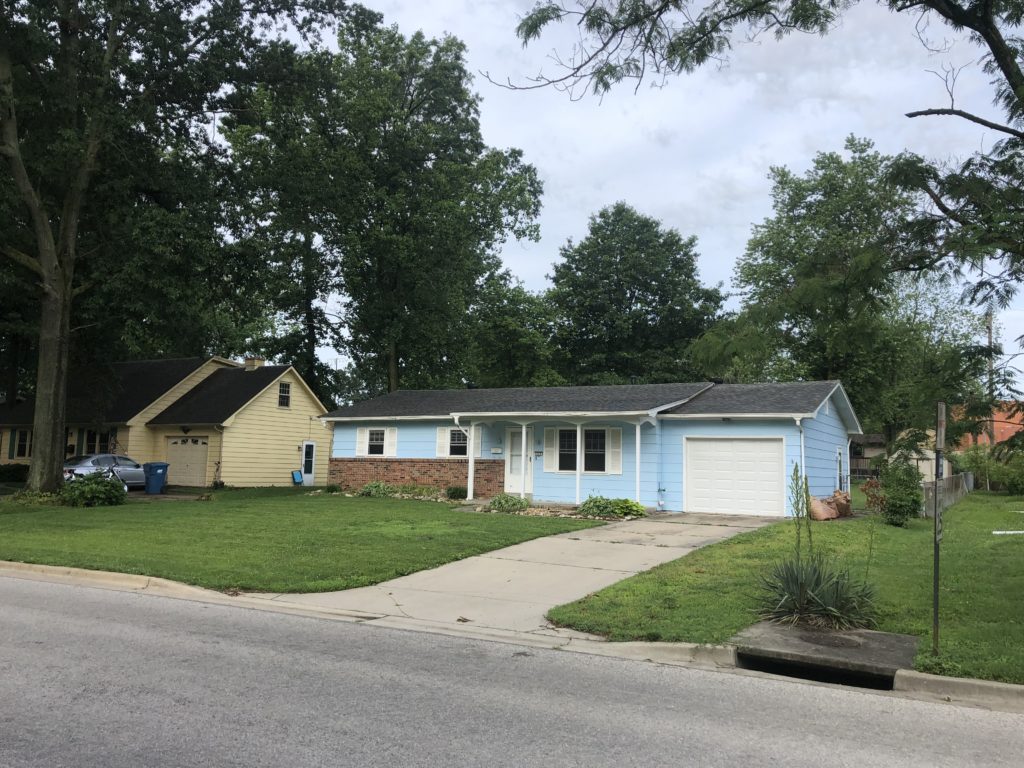
For the record, we raised our children in Lebanon, IL. Our home was a place of refuge and gathering for many of the neighborhood children from the local high school and village. We are Christians and believe in opening our hearts and home to those in need, whether physical, psychosocial or just a listening ear; in essence, giving back. One of the things we routinely did, was invited total strangers in our home. I once recalled coming home late one night and saw a hitchhiker on the highway. He was dirty, smelly, and hungry. I picked him up and brought him home without any advanced warning. Jeanne (my spouse ), never asked any questions, she just invited him in. While Jeanne prepared a hot meal for him, I showed him where to shower and clean up. After he was cleaned, he ate, then I took him back to the interstate so he could continue his journey. Bringing strangers home or feeding the needy was not unusual for our family.
I grew up in Chimborazo, and neither my mother nor my father ever turned anyone away who came to our home in need. I can still hear my father’s voice as he called out to mom. “Ena!” “Yes, Douglas,” she would reply. “What you so loud about?” He would answer, “put a plate hey fuh dis boy,” in his gruff voice. “Alright, Douglas,” she said and fixed a plate of whatever we were eating that day. Let me say that our family with eight children was not wealthy, and some days we ate stretched out breadfruit, and one can of corned beef also stretched out, probably for flavor more than nutrition. But the message and the lessons were real. If you do it unto the least of these, my brothers, you do it unto me. I sincerely hope those lessons of compassion and generosity resonated with my children. Serena, our daughter, is gone; but we know that during her short life, she championed the needy and unloved.
Over the years, however, we had had to modify our behavior when it came to helping strangers. One night, while returning from church in East St. Louis, we (my entire family in the car) stopped to help a woman who had driven her car into a deep ditch. As my wife and I were helping the woman, a young man jumped over her car and punched me in the face, knocking me out. My sons jumped out of the car, coming to my rescue. In that instant, someone reached into our now unoccupied car and robbed us. Why do I tell this story?
Because here in America, we have been, and we are being, programmed to distrust and hate each other. We can barely worship without guards standing on the walls of the Temples. What have we become? Are we no longer our brother’s keepers? The woman in the ditched car was black; the hitchhiker in the other story was a white male. It didn’t matter to me. They were souls in need.
My question is, who is accountable then, if a father spewed hate and dislike for his neighbors, and one of his sons takes it upon himself to kill the neighbors? Is the boy accountable? Is the father liable? What if the mother remained silent, knowing what was about to happen and did nothing to stop the killing? Is she somehow accountable? Who is accountable?
My friends, I can only caution you to think about the safety of your family; however, don’t miss an opportunity to do good when a need arises. On my last trip home to Washington, some of the young neighborhood children came to the house to see Jeanne ’s library. I could see the joy in her eyes and on her face as she shared stories and books with the children. The event certainly brought back memories of those days when we felt a bit more secure inviting strangers into our home and lives.
We are accountable for what and how we teach our children. What will your legacy be?
Stan Brooks, PhD

